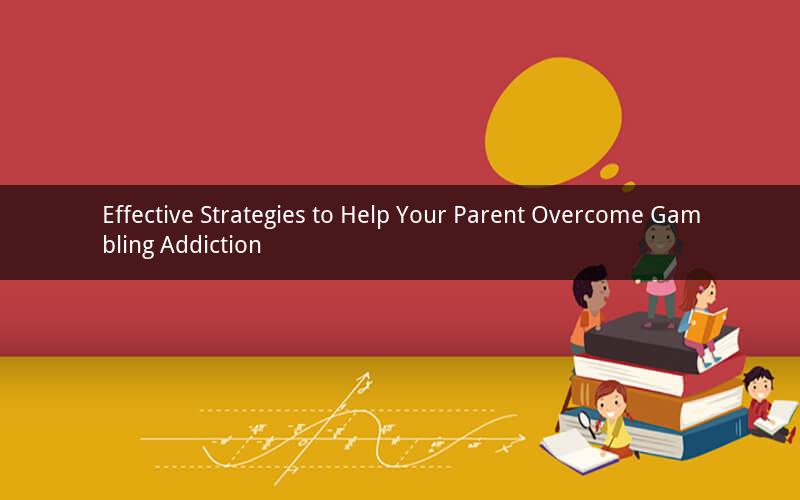
Introduction:
Gambling addiction is a serious issue that affects millions of individuals worldwide, including many family members. If you're concerned about your parent's gambling habits, it's crucial to take action and help them overcome this addiction. This article will explore various strategies you can use to support your parent in their journey to recovery.
1. Understand the Problem:
Before you can effectively help your parent, it's essential to understand the nature of their addiction. Gambling addiction is characterized by an irresistible urge to gamble, despite negative consequences. Familiarize yourself with the signs of gambling addiction, such as secretive behavior, lying, and neglecting responsibilities.
2. Communicate Openly:
Start by having an open and honest conversation with your parent about their gambling habits. Use a non-confrontational approach and express your concerns without judgment. Encourage them to share their feelings and experiences, allowing them to express themselves without fear of criticism.
3. Educate Yourself and Them:
Educate both yourself and your parent about the dangers of gambling addiction. Understand the psychological and financial consequences of this problem, and share this information with your parent. This will help them recognize the severity of their addiction and the need for change.
4. Encourage Professional Help:
Encourage your parent to seek professional help from a therapist or counselor specializing in gambling addiction. Therapy can provide them with the tools and support needed to overcome their addiction. Additionally, support groups such as Gamblers Anonymous can be beneficial in connecting them with others who share similar experiences.
5. Set Clear Boundaries:
Establish clear boundaries to help your parent manage their gambling behavior. This may include limiting access to gambling websites, placing restrictions on their bank accounts, or monitoring their spending habits. Ensure that your parent understands the consequences of breaching these boundaries.
6. Provide Emotional Support:
Your parent may experience feelings of guilt, shame, and frustration during their recovery journey. Offer emotional support by being a listening ear and a source of comfort. Encourage them to share their feelings and reassure them that they are not alone in this battle.
7. Develop a Support System:
Create a support system that includes friends, family, and professionals who can help your parent in their recovery process. Encourage your parent to participate in social activities that do not involve gambling and foster a positive and healthy environment.
8. Monitor Progress:
Regularly check in with your parent to monitor their progress and offer encouragement. Celebrate small victories and milestones along the way. This will help keep them motivated and focused on their recovery goals.
9. Address Financial Issues:
Gambling addiction often leads to financial difficulties. Help your parent address these issues by creating a budget, seeking financial counseling, or exploring debt relief options. Ensure they understand the importance of managing their finances responsibly.
10. Stay Informed:
Keep yourself informed about the latest research and treatment options for gambling addiction. This will enable you to provide your parent with the most up-to-date information and support.
FAQs:
1. Can I force my parent to seek help for their gambling addiction?
It's important to remember that you cannot force someone to seek help. However, you can encourage and support them in their decision to overcome their addiction. Be patient and persistent in your efforts to help them recognize the need for change.
2. How can I help my parent if they refuse to seek help?
If your parent refuses to seek help, you can still provide support by offering emotional support, educating yourself about the issue, and encouraging them to participate in social activities that do not involve gambling. Be patient and understand that change may take time.
3. Will my parent's gambling addiction ever go away?
With proper treatment and support, many individuals can overcome their gambling addiction. The recovery process may be challenging, but it is possible for your parent to achieve long-term sobriety.
4. Can I seek help for myself as well?
Yes, it's important to take care of yourself during this challenging time. Consider seeking support from friends, family, or support groups dedicated to helping loved ones of individuals with gambling addiction.
5. How can I help my parent rebuild their life after overcoming their addiction?
Once your parent has overcome their gambling addiction, they may need help rebuilding their life. Encourage them to pursue hobbies, seek employment, and develop healthy relationships. Be there to support them throughout this process.